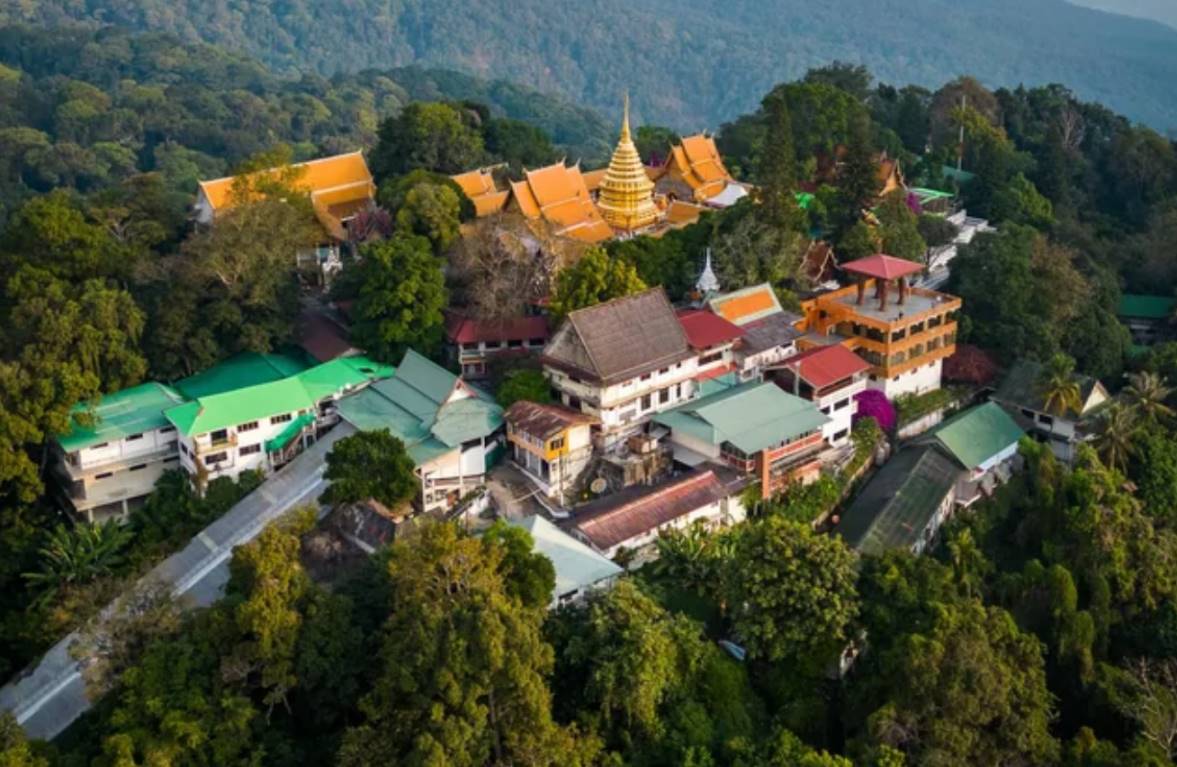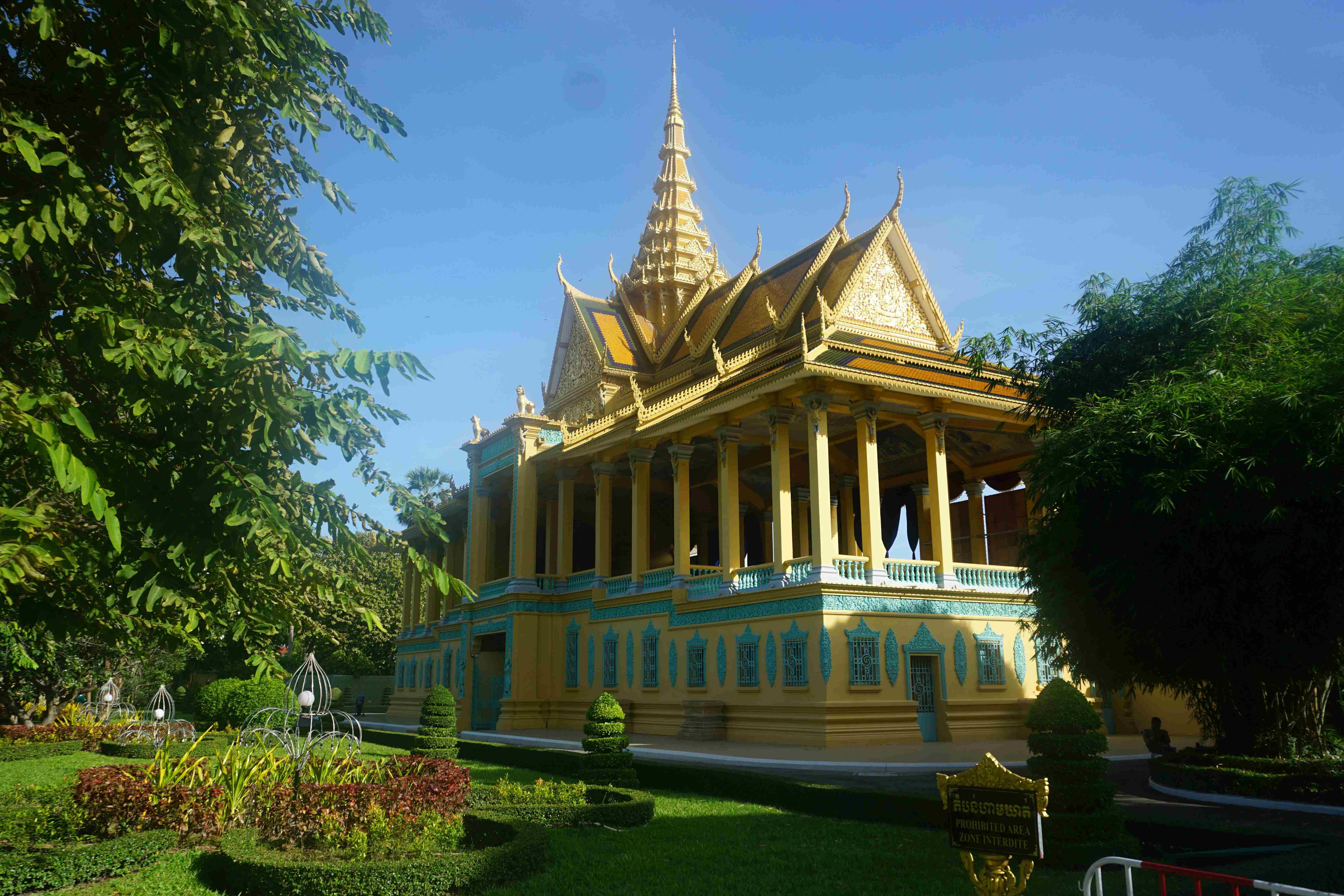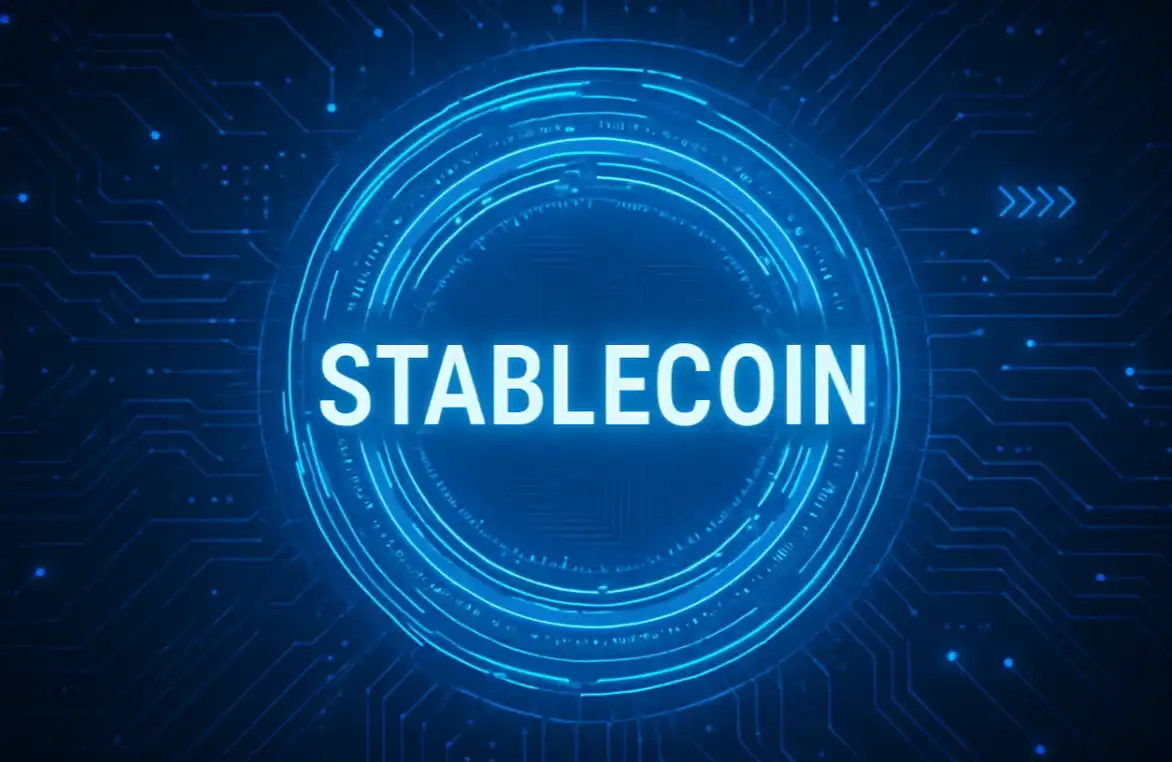Written by: angelilu, Foresight News
Chiang Mai, an ancient city embraced by emerald mountains, was once only a paradise for backpackers and leisure travelers. However, after wave after wave of digital nomads' in-depth investigations, Chiang Mai, which has long topped the list of digital nomad-friendly destinations, is slowly attracting Web3 digital nomads. Silent changes are quietly happening, with increasingly frequent Web3 activities, USDT top-ups visible on food delivery apps, and currency exchange points possibly offering cryptocurrency exchanges... This small northern Thai city has apparently become one of the gathering places for East Asian Web3 practitioners.

However, since 2025, with safety concerns fermenting after Chinese actors were kidnapped in Thailand, the Thai-Myanmar earthquake, and the reduction of large-scale Web3 events in Thailand, some in the industry believe that "there are no more Web3 people in Chiang Mai"! What is the actual situation? How has Chiang Mai's Web3 ecosystem developed? Does Chiang Mai still continue to attract the Web3 crowd? What stories are hidden here? And can Chiang Mai's experience be replicated elsewhere?
With these questions, I had an in-depth conversation with two Web3 practitioners residing in Chiang Mai to understand their stories and Chiang Mai's story. Therefore, this article does not focus on well-known figures in the Web3 field, nor does it tell the story of project founders who have raised millions of dollars, nor does it trace technological breakthroughs that have changed the industry's landscape. Instead, we turn our gaze to ordinary practitioners, those ordinary people who are reshaping their lives with Web3 concepts. Perhaps their stories are closer to reality and more universal and inspiring.

Pursuing a PhD in Chiang Mai, I BUIDL Web3 My Way
[The rest of the translation continues in the same manner, maintaining the original structure and translating all text while preserving specific terms like USDT, Web3, etc.]Her Web3 journey began in the summer of Wamao in Dali in 2022. That year, she was still trapped in a cubicle of a traditional company in Shenzhen, living a nine-to-six life, but she was clear that this was not the life she wanted. She was in a deep exploration phase, "To be honest, I was completely uncertain about what to do at that time, considering self-media, big data, Web3, and even applied for a working holiday visa to New Zealand, wanting to go abroad and find direction." She said, "I even took leave to attend the 'Wamao Summer' in Dali because I didn't know what Web3 was."
The event scene in Dali left a profound impression on her, showing her a new collaborative model where people spontaneously discussed projects on the grass, strangers formed teams to develop prototypes within hours, without a strict corporate hierarchy but full of creativity, which seemed to be the prototype of the work style or life she wanted.
She resolutely quit her job, and Web3 became her final choice. After deciding to enter the industry, she faced a new problem, "The scene was so attractive, but the question is - how can I support myself in this circle?"
Qiuqiu did not beautify her experience. "Broke as can be," she laughed, "There was a time when I washed dishes in a bar to save money, listening to people talk about projects while washing, hoping to find an opportunity." When first touching Web3, she also encountered common obstacles, "Many terms were incomprehensible, tried airdropping for a few months, found it wasn't suitable for me. I didn't know what I could do in Web3."
The turning point might have come from joining one DAO organization after another, which were permissionless, open to anyone who wanted to join. She made a simple decision: ask if she didn't understand, help if she could. "I joined many community groups, and when I saw someone needed help, I took the initiative, all for free at first." Qiuqiu adjusted her sitting posture, "In Dali, I helped organize a hackathon and got free accommodation in return. After that, I found this model is very common in Web3, with opportunities and needs in different cities." From organizing co-living to coordinating hackathon competitions, she gradually accumulated connections and experience, ultimately obtaining a full-time developer relations job, allowing her to continue exploring Web3 more stably.
She believes this is like PoW, where people receive their "compensation" according to their contribution, a compensation not solely measured by money.
In her exploration of the Web3 field, she also did not limit herself, organizing events, writing articles, operating communities, connecting with developers, going wherever she was needed. She said that although sometimes she helped for free, she might receive unexpected returns elsewhere.
Chiang Mai became her base by pure chance. She had once helped a friend for free while exploring self-media, and later saw a sustainable ecological project organized in Chiang Mai in the friend's video, instantly attracted by how people could learn skills like English and meditation by working on farms. When she arrived in Chiang Mai, she felt no discomfort or fear of being abroad, but instead felt like home, with so much to explore, so free, exactly the life she had longed for when trapped in a cubicle.
"Plus, Chiang Mai has consecutive long-term hackathons, like muChiangMai, Pop-Up City, Shanhai Wu, so I naturally got involved," she sighed, "Look at this city, low living costs, always summer, perfectly suitable for organizing long-term co-living activities, though hosting a one-day large summit is quite difficult, as few people would come to Chiang Mai for a big summit, Bangkok might be more suitable."
Talking about community, Qiuqiu feels both love and hate, "I love it because the community gave me a sense of belonging and countless opportunities," her eyes brightening, "The most magical thing about Web3 is that one person can be a community. By continuously connecting people and creating value, you become a node, a micro-community."
"The hate is more about frustration, decentralized communities like DAOs sometimes lack efficiency in collaboration, but this taught me something: learning to interact with the community is an art, finding a mutually beneficial balance point. Real community building requires persistent passion and action."
Now Qiuqiu is the manager of a digital nomad space, becoming a "liaison" in Chiang Mai's Web3 circle, "Honestly, most Web3 people here are short-term stays, coming and going," she observed, "but everyone leaves something behind and takes something away."
In Web3, she exchanged her abilities for the most precious thing - the freedom of choice.
Summary
This small exploration in Chiang Mai gave me a deep understanding of their stories. Whether it's the scholarly Jason or the practical Qiuqiu, their starting points and methods differ, but they both found their rhythm and position in this slow-paced city. The balance of freedom and uncertainty is the common theme of these two stories. The digital nomad lifestyle gave them immeasurable freedom, and most crucially, they both possess the most precious asset - "choice" - able to decide their next step based on inner voice rather than external pressure, actively creating rather than passively accepting.
At the same time, it gave me a clearer understanding of the Web3 ecosystem here. It's not that Chiang Mai lacks "charm" to retain Web3 people; on the contrary, Chiang Mai's greatest charm is "giving you the freedom to choose"! Overall, Chiang Mai remains a good choice for digital nomads in terms of living environment, with low living costs (a specialty coffee under 15 RMB), stable and fast internet, perpetual summer enthusiasm, plus Thailand's relatively lenient long-term visa policy for foreigners, forming infrastructural advantages. When you walk into shared workspaces hidden in the ancient city's alleys, you'll discover deeper attraction - an intangible atmosphere of openness and freedom, coincidentally aligning with Web3's values.
Although some settled friends have chosen to leave successively, new Web3 practitioners are still "flowing in". This personnel replacement precisely embodies the essence of digital nomad culture: a lifestyle of free flow, migrating according to seasons and personal plans. It's worth noting that this "migration wave" occurs in the entire digital nomad group, not specifically Web3 practitioners, reflecting the natural evolution of the digital nomad community, not the decline of the Web3 industry.








